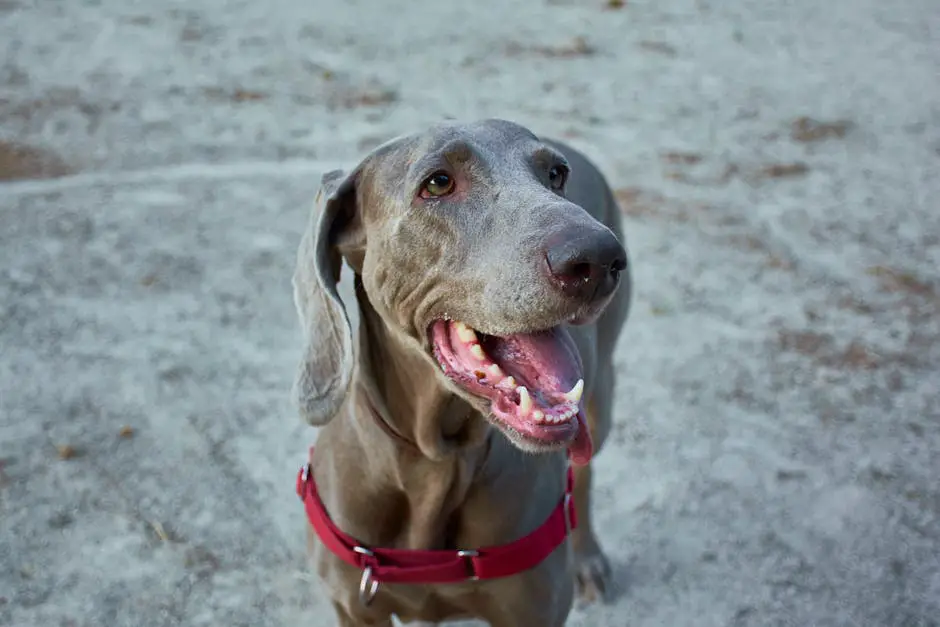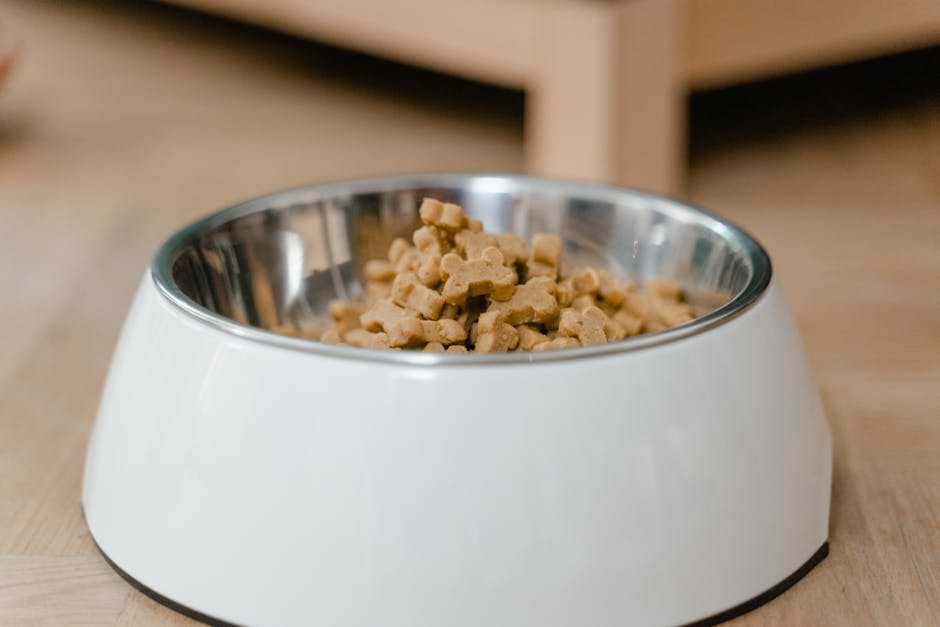Like humans, dogs too can suffer from a condition known as irritable bowel syndrome, sometimes referred to as IBS. Irritable bowel syndrome is the result of chronic inflammation of a dog’s stomach lining, which causes problems in absorbing nutrients from consumed food along with food passage issues. The condition typically is a chronic one in dogs and dogs suffering from IBS typically display symptoms such as an upset stomach, nausea, constipation, and/or diarrhea.
Dogs also suffer from a condition called inflammatory bowel disease (IBD). While there are several similarities between IBS and IBD, the two conditions are not the same. While IBD is purely a physiological condition, arising out of physical problems within a dog’s intestinal lining, IBS is psychosomatic, with many of the symptoms often caused by the mind.
Tests conducted to determine IBD often show abnormalities in a dog’s stomach, but IBS is trickier to determine as there are very little irregularities in the stomach lining, barring the inflammation.
What Causes IBS in Dogs?
So far, studies about IBS in dogs have been inconclusive in determining what actually causes the condition to occur. Medical experts list several possible risk factors such as:
- Intolerance towards certain types of food
- Dietary allergies
- Deficiency of dietary fibers
- Alteration of the colonic function’s neurochemical regulation
- Abnormal colonic motility and myoelectric activity
- Chronic anxiety and stress
- Digestive tract tumors
- Overeating
- Obstruction in the digestive tract
- Bacterial infections
- Antibiotics
In many cases, IBS simply happens and no definite cause or trigger can be determined.

What are the Symptoms of IBS in Dogs?
Dogs may or may not display all of the following IBS symptoms:
- Bouts of constipation
- Bouts of diarrhea, with the dog often passing minimal amounts of feces with mucus
- Abdominal bloating and pain
- Nausea
- Vomiting
- Low energy levels
- Mucus in stool
- Poor appetite
Keep in mind that the aforementioned symptoms may arise due to other health complications as well. So if your dog displays one or more of these symptoms, you should immediately consult a veterinarian to rule out other medical conditions.
How is IBS Diagnosed?
As most IBS symptoms are similar to symptoms that arise from other medical conditions, veterinarians first conduct a thorough physical examination to rule out conditions such as:
- Inflammatory colitis
- Giardiasis
- Pythiosis
- Histoplasmosis (fungal infection)
- Clostridium perfringens (bacterial infection)
- Cecal inversion (an abnormal movement of the intestines)
- Colonic neoplasia (colon tumor)
Once these conditions are ruled out, IBS is diagnosed and the veterinarian would also suggest ways to treat and manage the condition.
What are the Ways to Prevent and Manage IBS?
As mentioned before, several risk factors may trigger IBS in dogs. While there is no sure-fire preventive measure, preventing exposure of dogs to these risk factors may drastically reduce the chances of IBS.
One of the biggest triggers of IBS is anxiety and the resulting stress from chronic anxiety. Therefore, you must ensure that your dog remains as anxiety-free as possible. To ensure this, you need to first find out what triggers anxiety in your dogs. Many dogs become anxious when they don’t get the attention and care that they need, which is why you must prioritize your dog’s well-being.
Making a strict fitness regime is also recommended. Daily workouts help dogs in staying fit and keep their digestive systems functioning optimally. Take your dog out for routine walks, jogs, and runs to keep its fitness levels high. If you can’t spare enough time, ask a family member or a neighbor to help you out. If none of those are an option then you can also consider a dog treadmill but this is no substitute for proper walks. Exercising regularly also rids your dogs of pent up negative energy. Not releasing this negative energy can build up anxiety and stress significantly, leading to digestive system troubles.
You should also figure out the types of food that your dog cannot tolerate. Continuously feeding dogs food that they are allergic to may cause serious inflammation of the stomach lining and result in IBS. The best way to identify your dog’s food triggers is to monitor the quality of its stool closely.
If a certain type of food causes constipation or diarrhea, it’s a tell-tale sign that your dog has an allergy or intolerance to said type of food. By doing this, you can remove the food from its diet and instead feed it food that it is tolerant towards.
Refrain from feeding the dog leftovers of your meals, as human food is often hard for dogs to digest. Human food is cooked using a variety of spices and condiments, which may cause severe inflammation in your dog’s digestive tract.
If your dog has chronic diarrhea, you should ensure that it gets enough freshwater, as diarrhea can cause severe dehydration. If constipation is the main issue, be sure to include a lot of fiber in your dog’s diet, as it can help flush out the waste material.
What Types of Food Can Trigger IBS?
IBS may be triggered by certain types of food or certain substances that are present in food. Here are a few foods and substances that may trigger IBS in dogs:
- Fiber: While fiber does not trigger IBS, the lack of fiber in a dog’s diet can certainly lead to IBS symptoms. If your dog’s diet does not consist of enough fiber, you can consider adding foods such as beet pulp, which has a lot of fiber. Adding fiber can improve fecal quality without taking a toll on the digestibility of other nutrients.
- Proteins: There are numerous types of proteins and some dogs may be intolerant to some of them. If your dog has a primary source of protein and displays IBS symptoms, you should try changing the protein source and see if it works. For example, if you give your dog beef for protein and it experiences bouts of constipation/diarrhea, you can change the source of protein to chicken or fish.
- Minerals and Vitamins: Minerals and vitamins are nutrients and they are required by the digestive system to digest food properly. While many types of commercial dog food boast of a variety of minerals and vitamins, home-cooked meals may lack these nutrients if not properly planned. If you give home-cooked meals to your dog, you should consult a veterinarian to discuss how you can give your dog the minerals and vitamins that it needs.
- Fat: Oils and fats are among the most hard-to-digest substances and if you are feeding commercial food products to your dog, you should ensure that the percentage of fats and oils is not too high. Typically, if the list of ingredients features oils and fats among the first four or five ingredients, it indicates a high percentage of oils and fats.
A lot of commercial food brands also don’t mention the grade or quality of ingredients in their ingredient list. Poor quality ingredients may also interfere in the normal workings of your dog’s stomach and trigger IBS symptoms. To avoid commercial dog food with below-par quality of ingredients, you should do your research and find out statistical surveys and studies to figure out what the best brand would be for your dog.
If you are unable to pinpoint a brand through research, you should immediately consult a veterinary nutritionist. A veterinary nutritionist can suggest dietary changes and also the types of commercial dog food that would be best suited for your dog.
What to do if a Dog has Chronic Anxiety?
Anxiety and stress are seen as the two main triggers of IBS in dogs. However, in certain circumstances, no matter what owners do to prevent and manage anxiety, dogs still remain anxious and prone to stress. In such situations, IBS can be hard to manage. Fortunately, there are certain medications that a veterinarian may prescribe.
While these medications can keep anxiety levels under control, you cannot rely on these medications alone to resolve chronic anxiety and stress. A healthy diet, regular physical activity, and emotional care and support must complement the medication.
The anxiety medications also take time to show their effectiveness, with most treatments using these medications lasting for at least 2 – 3 months. Here are ten anxiety medications that are frequently prescribed by veterinarians for managing chronic anxiety in dogs:
Amitriptyline
Amitriptyline is an anti-depressant that promotes the increase of norepinephrine and serotonin; two neurotransmitters that are involved in regulating a dog’s mood.
Amitriptyline tablets should be administered to dogs with their food. It is typically prescribed by veterinarians for dogs who suffer from separation anxiety, i.e. a form of anxiety that is triggered when owners and caregivers are not around the dog.
Dosage of this drug is typically tapered off following the first two weeks of administration.
Alprazolam
Dogs often suffer from situational anxiety like a severe bout of anxiety after a loud noise. To provide relief from situational anxiety, alprazolam is often prescribed.
Alprazolam is classified medically as a benzodiazepine, a class of drugs that works by working on the central nervous system through depressing partial activities. Alprazolam offers fast relief and can be administered immediately after a dog’s anxiety is noticed. In some cases, you can even administer the drug when you anticipate an anxious response to a situation from your dog.
Alprazolam is available in tablet form and can be given to dogs with their food or without.
Clomipramine
If your dog suffers from both situational and separation anxiety, clomipramine may be prescribed, as the drug combines the anxiety-relieving benefits of both alprazolam and amitriptyline.
In fact, clomipramine is recommended by most veterinarians as it is a treatment method for separation anxiety in dogs that is FDA-approved. It works similarly to amitriptyline and the recommended dosage period is two months, as the drug may take some time to show whether it is effective or not.
Clomipramine is available in tablet form and can be administered to dogs with their food or without.
Buspirone
Like humans, dogs suffer from social anxiety too and this form of anxiety may prevent them from mingling with other dogs freely.
For social anxiety and other generalized forms of anxiety in dogs, veterinarians may prescribe buspirone, which is an anxiolytic. The drug works by activating the brain’s serotonin receptors. For the drug to work, it needs to be administered over a long period and hence, it is not a recommended drug for dogs who suffer from situational anxiety. It is a mild-anxiety treatment, which makes it ineffective for severe bouts of anxiety.
Available in tablet form, buspirone can be given to dogs without their food or with it.
Diazepam
Diazepam is a drug that is used to manage not just anxiety, but also to manage and control seizures, relax muscles, and stimulate the appetite.
It is best for relieving situational anxiety and also for severe anxiety that may trigger panic attacks and develop phobias. Like alprazolam, diazepam is a benzodiazepine and it works by depressing certain central nervous system parts.
Diazepam can be administered in tablet, liquid, or injectable forms.
Dexmedetomidine
If your dog suffers from severe situational anxiety and/or phobias, a veterinarian may prescribe dexmedetomidine, an FDA-approved alpha-2 adrenoceptor agonist.
The drug depresses partial activities of the brain and for it to be most effective, it should be administered immediately before a dog experiencing a bout of anxiety.
Unlike the drugs mentioned before, dexmedetomidine is available as a transmucosal gel, which should be applied between the gums and the cheek, following which the mucus membranes will absorb it.
Veterinarians recommend owners to wear disposable gloves that are waterproof before administering the drug.
Apart from these six drugs, lorazepam, fluoxetine, sertraline, and paroxetine are also prescribed by veterinarians depending on the severity of anxiety and the form of anxiety that a dog suffers.
Whenever you have your dog on any form of medication, make sure to follow the instructions and your vets advice for dosage and tapering off the treatment. If you fail to do this you may cause problems for your dog or prevent the treatment from being effective.
What happens if IBS Cannot be treated?
For some dogs, IBS is a life-long medical condition that cannot be treated but only managed. Even if treatment is not possible, you should ensure that your dog is eating the right food, getting lots of physical activity, and avoiding anxiety-triggering situations.
While IBS definitely causes a lot of discomfort in dogs, it is not a life-threatening condition. By managing it effectively, you can reduce a lot of your dog’s discomfort and give it a high quality of life.







